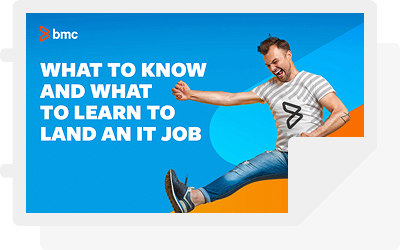As the cloud continues growing and becoming an integral part of daily life and work, competition between cloud service providers grows with it. Microsoft Azure is one of the emerging market leaders with about 20% of the cloud market share, and certifications in the service are quite rigorous, holding significant value as proof of professional knowledge and skills.
There are currently 14 Microsoft Azure certifications available within Microsoft’s vast library of training options. Each certification consists of one to two demanding exams for which there are various preparation options available online. Preparing for the exams requires dedicated studying for weeks or months, but the payoff of significant growth and recognition in the cloud arena makes the investment worthy of the effort.
Available Azure Certifications and Categories
The 14 Azure certifications fall into four main categories: Fundamentals, Associate, Expert, and Specialty. The first three groups form a role-based system in which the certifications focus on different levels of difficulty for certain professional careers. The Specialty certifications concentrate on more narrow fields or specific technical areas that might apply to various roles. The category and name of the relevant exam(s) for each certification are:
- Azure Fundamentals (Fundamentals, Exam AZ-900)
- Azure Data Fundamentals (Fundamentals, Exam DP-900)
- Azure AI Fundamentals (Fundamentals, Exam AI-900)
- Azure Data Scientist (Associate, Exam DP-100)
- Azure Database Administrator (Associate, Exam D-300)
- Azure Administrator (Associate, Exam AZ-104)
- Azure Data Engineer (Associate, Exams DP-200 and DP-201)
- Azure Security Engineer (Associate, Exam AZ-500)
- Azure AI Engineer (Associate, Exam AI-100)
- Azure Developer (Associate, Exam AZ-204)
- Azure Solutions Architect (Expert, Exams AZ-303 and AZ-304)
- DevOps Engineer (Expert, Exam AZ-400)
- Azure IoT Developer (Specialty, Exam AZ-220)
- Azure for SAP Workloads (Specialty, Exam AZ-120)
The below sections discuss further details about each of the certifications.
Fundamentals
Unlike the other categories, the Fundamentals Azure certifications do not require any specific prerequisites. However, Microsoft does recommend having some basic knowledge of data usage in Azure. Experience certainly does help, but even those just starting out in the field can use these certifications as a starting point to guide their learning and form a base of knowledge for other exams. The three Fundamentals certifications and the exams associated with them are:
- Azure Fundamentals (Exam AZ-900)
- Azure Data Fundamentals (Exam DP-900)
- Azure AI Fundamentals (Exam AI-900)
Current or aspiring developers would benefit most from the Azure Fundamentals certification. It covers basic knowledge of cloud services, the main services of Microsoft Azure, general security and privacy, Azure prices, and Azure life cycles.
The Azure Data Fundamentals certification, on the other hand, is ideal for candidates looking to get involved in data engineering or database administration. It evaluates basic data concepts both related to and exterior to Azure, as well as analytics workload analysis in Azure.
Finally, Azure AI Fundamentals can apply to a variety of roles in the fields of AI engineering, data science, development, and solutions architecture. This certification will test the candidate’s knowledge in areas such as machine learning, artificial intelligence, and natural language processing in relation to Azure services.
Associate
Although taking the Azure Fundamentals certification would be useful as a prerequisite before jumping into the Associate certifications, there is technically no requirement to do so. The Associate certifications merely tackle more advanced topics for those candidates who believe that they have a higher level of experience in particular areas. The seven certifications in this group and their associated exams are:
- Azure Data Scientist (Exam DP-100)
- Azure Database Administrator (Exam D-300)
- Azure Administrator (Exam AZ-104)
- Azure Data Engineer (Exams DP-200 and DP-201)
- Azure Security Engineer (Exam AZ-500)
- Azure AI Engineer (Exam AI-100)
- Azure Developer (Exam AZ-204)
The Azure Data Scientist certification evaluates topics such as Azure machine learning, training models, experiment execution, and model optimization and administration. Candidates should be able to apply Azure machine learning approaches in the various stages of models applicable to business solutions.
An Azure Database Administrator certification tests the candidate’s ability to deploy and manage operational aspects of the cloud-native and hybrid data platform solutions using Microsoft Azure services. The expected skill set includes planning and implementing data platform resources, implementing safe environments, optimizing application performance, and using T-SQL.
An Azure Administrator certification focuses less on data and more on the Microsoft Azure environment in the context of other organizations. Candidates should have professional experience implementing, managing, monitoring, and supervising issues of identity, governance, storage, processing, and networks in the Azure cloud.
Obtaining an Azure Data Engineer certificate will require knowledge and experience in the implementation, management, security, monitoring, and privacy of data using the full range of Azure services. This certification is the only one in this category that requires two exams to obtain the certification.
Certification as an Azure Security Engineer involves proving familiarity with implementing security controls, managing identity and access, and protecting data, networks, and applications in both cloud and hybrid environments.
The Azure AI Engineer certification then involves similar topics to those of the AI Fundamentals certificate, but on a higher level. It will evaluate the candidate’s skills in the areas of cognitive services, machine learning, knowledge mining, and artificial intelligence within Microsoft.
The Azure Developer certificate focuses on testing abilities regarding the design, creation, testing, and maintenance of services and applications in the Azure cloud. Thus, the scope of the evaluation includes all of the phases of cloud development, from definition and design through long-term maintenance and supervision. Candidates should have at least one or two years of professional experience as a developer, be competent in Azure SDK, and be familiar with at least one Azure-compatible programming language.
Expert
The certifications in the Expert category work on the assumption that the candidate has fairly extensive experience in the field, making them very familiar with complex topics. The two options in this group are:
- Azure Solutions Architect (Exams AZ-303 and AZ-304)
- DevOps Engineer (Exam AZ-400)
Azure Solutions Architect certification requires the candidate to pass two exams: one on Microsoft Azure Architect Technologies and another on Microsoft Azure Architect Design. Obtaining the certificate indicates proficiency in designing, implementing, and administering infrastructure, security, applications solutions, data platforms, and more. A certified Solutions Architect should also have some experience with DevOps processes, as they can complement solutions architecture.
The DevOps Engineer certificate requires completion of at least one prerequisite from two available options: either the Associate Azure Administrator or Associate Azure Developer certificate. Then, the final exam tests the candidate’s capacities in the areas of delivering commercial value through working with technologies, processes, and people. The primary responsibilities of the role include design and implementation of infrastructure, code, security, testing, delivery, compliance, monitoring, and collaboration strategies.
Specialty
Specialty certificates may complement a number of other role-based certifications. The two Specialty Azure certifications are:
- Azure IoT Developer (Exam AZ-220)
- Azure for SAP Workloads (Exam AZ-120)
The internet of things (IoT) certificate is a great option for developers wanting to give their portfolio an extra boost. It looks at several topics, including cloud development, IoT solution infrastructure, administration of devices, Edge implementation, and data processing.
The SAP Workloads certificate can fit nicely into roles such as administrator, solutions architect, or engineer. Candidates should already have quite a bit of experience in one of these roles and be familiar with the SAP system and industry standards regarding using SAP solutions in Microsoft Azure.
How to Reap the Benefits of Azure Certifications
The above certifications can help professionals prove their skills and become more competitive in the modern workplace. Oracle Cloud Predictions forecast that, within the next five years, about 80% of all enterprise workloads will be on the cloud, making skills in services like Microsoft Azure more relevant than ever.
Because 12 of the 14 Azure certificates are role-based, they fit market requirements for corresponding professional jobs extremely well. And this applicability holds in a variety of sectors, allowing certified individuals the flexibility to work in different areas such as IT, healthcare, government, or finance.
As far as earnings go, Azure developers and architects often make salaries in the range of $130,000 to $145,000. More senior positions with expert-level certificates can even reach over $170,000 per year.
There are several ways to prepare for Azure certification exams, including third-party pages such as Cloud Academy or Udemy dedicated to Azure learning and preparation. These sites house extensive amounts of useful informational videos, formal courses, practice tests, and more. The amount and type of preparation for any exam will depend on its individual specifications, so the best place to check official exam characteristics and prerequisites is the Microsoft library page.







